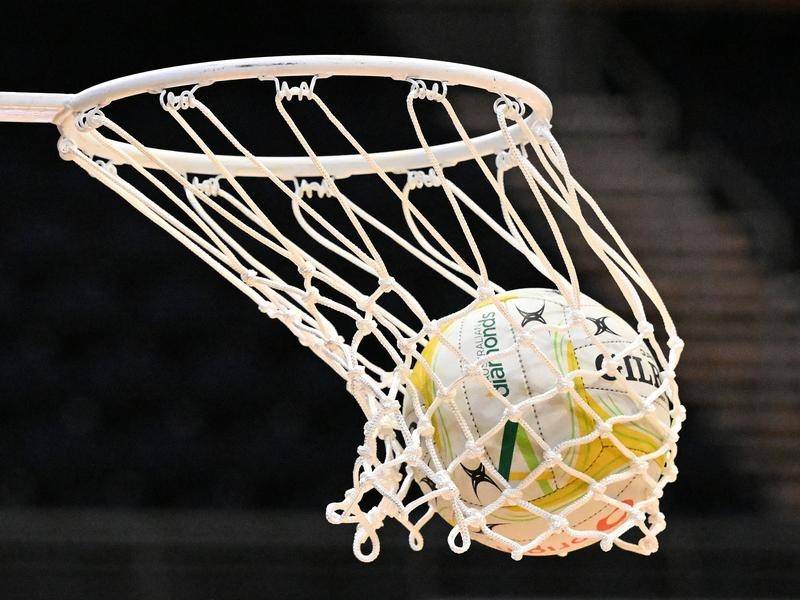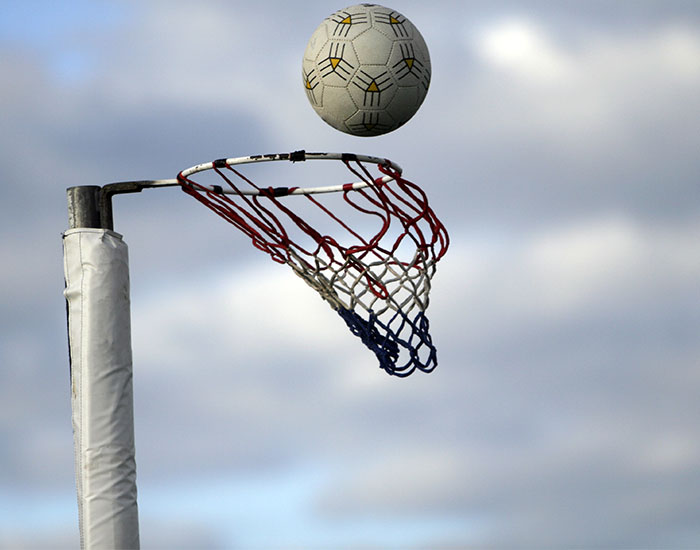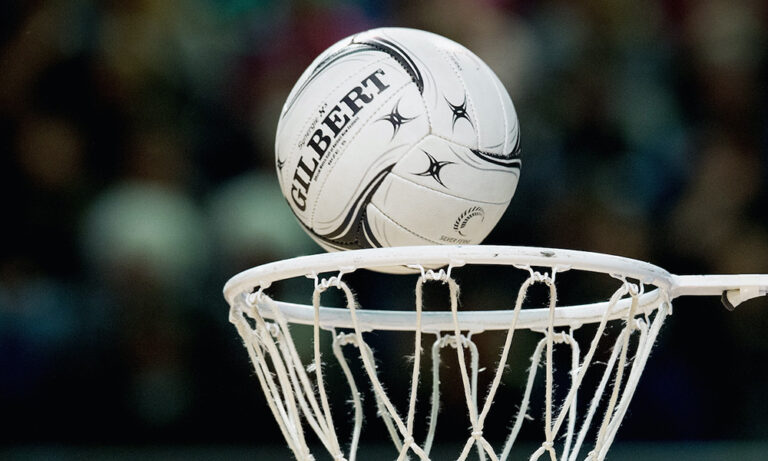In netball, reaction time is important because it helps players make quick decisions during the game. When you can react fast, you can catch passes, avoid opponents, and create chances to score.
It’s like having a special skill that lets you read the game, predict what the other team will do, and make precise moves. This quick reaction skill is especially crucial in defense, helping you stop the other team’s plans.
To do well in netball, practicing to improve your reaction time is key. It gives you an advantage and really helps your team play better.
How is Reaction Time Measured in Netball?

Measuring reaction time in netball involves assessing the time it takes for a player to respond to a specific stimulus or event. There are several methods used to measure reaction time in sports, including netball
Electronic Timing Systems
Lights or Sounds: Players can be asked to react to visual or auditory stimuli, such as a light turning on or a sound being played. The time between the stimulus and the player’s response is then measured electronically.
Electronic Timing Gates: Placed strategically on the court, players move through these gates, and the time it takes to pass through them is recorded. This method helps assess the reaction time in real game scenarios.
Video Analysis
Coaches and sports scientists can use video analysis to measure reaction time by examining the time elapsed between a specific event in the game (e.g., opponent’s pass) and the player’s response.
Computer-Based Tests
Specialized software can be used to present stimuli on a computer screen, and players respond using input devices. This method allows for controlled and repeatable testing conditions.
Interactive Simulations
Virtual reality or interactive simulations can be employed to replicate game-like situations, providing a more immersive and realistic assessment of reaction time in netball.
How Does Reaction Time Shape Netball Performance and Influence Game Dynamics?
Reaction time is like the secret sauce in netball. It guides decisions, intercepts passes and makes strategies work. Whether it’s quick thinking or predicting opponents, this skill is the key to success on the netball court.
Quick Decision-Making on the Court
Quick decision-making is a fundamental aspect of netball performance, and it is closely linked to reaction time. In the fast-paced and dynamic nature of netball, players often have split seconds to assess the situation, process information, and make decisions that can influence the course of the game.
Situational Awareness: Reaction time plays a pivotal role in a player’s ability to maintain a high level of situational awareness. This includes being aware of the positions of teammates, opponents, and the ball at all times.
Game Understanding: Players with faster reaction times can quickly analyze unfolding scenarios, such as identifying open teammates, recognizing defensive gaps, and adapting to the ever-changing dynamics of the game.
Effective Passing and Movement: Quick decision-making enables players to make efficient passing choices, selecting the most appropriate teammate or strategic move to maintain possession or create attacking opportunities.
Adaptability: Netball is a sport with numerous rules and constraints. Players with fast reaction times can adapt to unexpected situations, such as sudden changes in the opponent’s defensive strategy or unanticipated movements on the court.
Anticipation of Opponents’ Moves
Anticipation is a cognitive skill closely tied to reaction time. It involves predicting and preparing for the actions of opponents based on subtle cues and patterns observed during the game.
Reading Body Language: Players with a keen ability to read the body language of opponents can anticipate moves more effectively. This includes predicting changes in direction, recognizing feints, and understanding the intentions of the opposition.
Interception and Defensive Play: Fast reaction times enable defenders to anticipate the trajectory of the ball and make timely interceptions. Anticipating opponents’ passes and shots is crucial for disrupting the flow of the opposing team’s attack.
Positioning: Anticipation allows players to position themselves strategically, optimizing their chances of intercepting passes, blocking shots, or securing rebounds.
Strategic Decision-Making: Anticipation is not only about predicting immediate actions but also involves foreseeing the broader strategic developments in the game. Players with strong anticipation can make decisions that impact the outcome of the match.
Creating Scoring Opportunities
Scoring in netball often depends on the ability to exploit openings in the opponent’s defense. Fast reaction times contribute significantly to a player’s capacity to create and capitalize on scoring opportunities.
Exploiting Defensive Lapses: Players with quick reaction times can exploit momentary lapses in the opposing team’s defense, identifying and capitalizing on openings to receive passes or take shots on goal.
Dynamic Movement: Creating scoring opportunities involves dynamic movement on the court. Players with fast reaction times can adjust their positioning swiftly, making it challenging for defenders to predict and counter their moves.
Collaborative Play: Quick decision-making and anticipation foster effective collaboration within the team. Players who can anticipate their teammates’ actions and react promptly contribute to the creation of seamless attacking plays.
Shooting Accuracy: When creating scoring opportunities, the ability to react rapidly to the ball’s position, adjust shooting technique, and make split-second decisions enhances a player’s shooting accuracy.
How Does Reaction Time Shape Strategies and Enhance Defensive Play?

Intercepting Passes and Shots
In netball, defensive play relies heavily on the ability to intercept passes and shots from opponents. Reaction time is a critical factor, as defenders must react swiftly to the movements of the attacking team and anticipate the trajectory of the ball to make successful interceptions.
Reading the Game: Defenders with a high level of reaction time excel at reading the flow of the game. They can quickly analyze the passing patterns of opponents, identify potential targets, and position themselves strategically to intercept the ball.
Timing and Precision: Successful interceptions demand precise timing. Fast reaction times enable defenders to time their movements accurately, ensuring they reach the intended target area of the ball at the right moment for interception.
Anticipating Opponents: Beyond physical agility, reaction time involves mental agility. Defenders need to anticipate opponents’ passes, predict their intentions and adjust their positions to be in the optimal spot for interception.
Ball Tracking: Quick reactions are crucial for tracking the ball’s trajectory. Defenders must visually track the ball’s movement while simultaneously processing information about the positions and movements of both teammates and opponents.
Disrupting Opponents’ Strategies Through Quick Reactions
Defensive players in netball play a pivotal role in disrupting the flow and strategies of the opposing team. Quick reactions are essential for creating defensive pressure, forcing opponents into errors, and limiting their scoring opportunities.
Pressuring Opponents: Reacting swiftly to opponents’ movements allows defenders to apply constant pressure, limiting the time and space attackers have to make decisions. This pressure can lead to rushed passes, inaccurate shots, or turnovers.
Forcing Errors: Quick reactions contribute to a defender’s ability to exploit opponents’ mistakes. By reacting promptly to a misplaced pass or a hesitation in an opponent’s movement, defenders can seize opportunities to regain possession and transition to an offensive play.
Adapting to Dynamic Situations: Netball is a dynamic sport, and defensive strategies must adapt to the changing circumstances on the court. Fast reaction times enable defenders to adjust their positions, switch defensive tactics, and counter opponents’ evolving strategies in real time.
Team Coordination: Quick reactions foster effective communication and coordination among defensive players. This ensures that the defensive unit operates as a cohesive force, anticipating and responding collectively to the movements and strategies of the opposing team.
FAQ
Why is coordination important in netball?
Coordination is crucial in netball as it ensures smooth teamwork and precise movements on the court. Players with good coordination can seamlessly pass, shoot, and defend, enhancing overall team performance.
Why is agility important in netball?
Agility is vital in netball as it enables players to swiftly change direction, evade opponents, and react to dynamic game situations. Agile players can navigate the court with ease, contributing to effective offensive and defensive play.
What are the 3 most important fitness components in netball?
The three most important fitness components in netball are agility, endurance, and strength. These elements collectively contribute to a player’s ability to perform well throughout a match.
Why is speed agility and quickness important?
Speed, agility, and quickness are essential in netball for dynamic and fast-paced play. These attributes empower players to outmaneuver opponents, capitalize on scoring opportunities, and react swiftly to changes in the game.
Why is agility important in performance?
Agility is paramount in overall athletic performance, influencing a player’s ability to move efficiently, change direction rapidly, and maintain control. In netball, agility enhances a player’s capacity to excel in both offensive and defensive aspects of the game.
Which is more important speed or agility?
Both speed and agility are important, but their significance depends on the player’s position and the demands of the game. Speed is crucial for quick sprints, while agility is vital for rapid changes in direction and nimble maneuvers.
Can agility improve speed?
Yes, improving agility can contribute to enhanced speed. Agile movements often involve efficient biomechanics and improved neuromuscular coordination, which can positively impact overall speed and quickness on the netball court.
Is agility a skill or ability?
Agility is generally considered a combination of both skill and ability. It involves learned techniques and movement patterns (skill) as well as inherent physical traits and neuromuscular coordination (ability). Developing agility requires a blend of practice and innate capabilities.
Final words
The importance of reaction time in netball is undeniable. It’s the game-changer that influences quick decision-making, anticipates opponents’ moves, and creates scoring opportunities. Swift reactions are not just about individual skills; they shape the dynamics of the entire team, especially in defensive play.
By mastering reaction time, players gain a competitive edge, turning potential challenges into opportunities. In the fast-paced world of netball, honing this skill is key to success, contributing not only to personal performance but also to the overall triumph of the team on the court. It’s the secret ingredient that transforms good players into exceptional ones.

